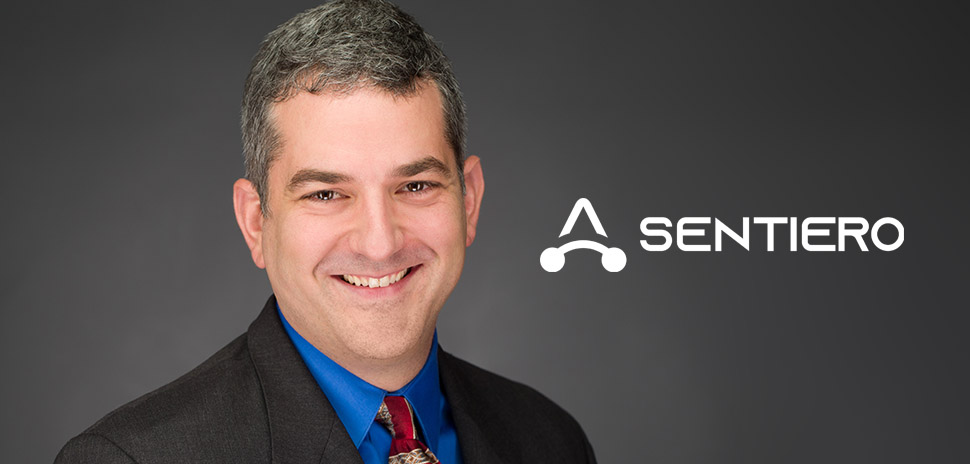Plano venture capital firm Sentiero Ventures has made the first investment from its new AI-focused fund: A $250,000 investment in Data Sentinel, an enterprise-sensitive data management platform with its U.S. headquarters in Texas. It kicks off a series of 10 investments for Sentiero Ventures’ $10 million fund.
In March, Sentiero closed on its first round of funding to start investing in software-as-a-service companies that use AI—process automation, cognitive insights, cognitive engagement, and data collection—to power their key solutions.
That allowed the team to move forward with its plans to make ten initial investments up to $500,000 in its portfolio companies.
Founded last year, Sentiero focuses on early-stage SaaS companies that use artificial intelligence as a foundation for their business solutions. Founder and Managing Partner David Evans wants to capitalize on the growing AI sector—one that he says is expected to add $15 trillion to the global economy by 2030.
Intelligence-enabled SaaS
The VC invests in companies that use AI in their core business model. “It’s a broad charter, but it’s not,” Evans says. “What we do is separate what’s actually useful and what’s novelty.”
The VC describes a Venn diagram of artificial intelligence: What AI can do and what’s useful for a business.
“We find the slice of the overlap in that Venn diagram is much narrower than that most people think,” he says. There’s a lot of AI tech that’s core to a business: “It’s just ‘Hey, we threw AI in there so that we can have some buzzwords.'”
That’s the first place where Sentiero finds most deals fall out: There may be some artificial intelligence, but it’s a “nice to have” not core.
Sentiero invests in companies that leverage artificial intelligence to make their products faster, more efficient, or more differentiated. “We want artificial intelligence to be a core pillar of the product — a pillar that really generates value,” he says.
Evans says AI is at a “stage of adoption similar to the web in 1997 and presents a similar opportunity for investors.”
Mutual wins
The VC also sees opportunity in Dallas-Fort Worth.
Evans is a relative newcomer to the region—he’s been here for six years and still has a Connecticut area code—but he’s spent a long time studying the region’s ecosystem.
Evans chose Dallas over Austin for Sentiero because he and his team simply felt like they needed to be here. He says they took a long, hard look at DFW and wanted to be “here in the center of it all.”
“We wanted to become active in the startup ecosystem,” he says. “In DFW, the thing that excites me is that because it’s such a nascent ecosystem: it encourages collaboration versus places like New York and Boston and in the Bay—even the deal we just did.”
In other places, you’re in “heavy, heavy competition, rather than saying, who are all the really smart people we can bring to the table to create a mutual win,” the VC says.
Evans cultivates active relationships with Dallas Venture Capital, Interlock, RevTech, and other funders in town. There’s an opportunity to work together for mutual wins rather than a “feeding frenzy” for the team deal.
Early-stage venture capital in DFW
There aren’t a lot of early-stage investors in Dallas-Fort Worth, Evans notes.
The VC says part of the struggle in the DFW ecosystem when “we got comfortable with early-stage investment at the tail end of the telecom boom.” Later, when it was time for investors “to stop licking their wounds,” there were other more traditional asset classes that were really attractive, such as real estate and oil and gas.
Now Evans is looking for what he calls the “bell cow moment” in Dallas-Fort Worth — the big moment that everyone can hang their hat on in the region.
We just haven’t had that yet, he says. But he sees a time when folks here can say, “Yes, we can do early-stage venture in Dallas again, because [we see] that opportunity.”
Evans looks for the moment where entrepreneurs can build a successful startup with financial flexibility to nurture the investment ecosystem and get it rolling forward.
“It’s going to take some good things, some wins at the early stage that are that are really visible to get the flywheel going,” he says.
The VC points to examples of that such as Tivoli in Austin, where “there’s a nice big exit that starts driving everything.” (Tivoli launched in 1989 and was acquired seven years later by IBM for $743 million.)
That’s in contrast to Dell, he says, where early employees under No. 500 likely made life-changing, retire-early kind of money and other ecosystems where the founder and the top executives did really, really well. But, he says, there were also other role players there that made enough money to be able to take some risks, but not enough to where they were never going to work again.
So, he says, “we’re looking for that Tivoli moment here, where we have that really nice big exit that starts driving everything.”
Meet Data Sentinel
Evans expects to do four investments this year. First up is Data Sentinel, which helps businesses manage their data privacy compliance, governance, and quality in real time.
The company, which has its U.S. headquarters in Austin, is said to be a leader in sensitive data management innovation. Its proprietary deep learning technology is meant to discover the “true nature” of an organization’s data across all sources and systems. The tech monitors and measures the data, ensuring compliance with company policies and evolving regulations.
Data Sentinel, which has a team of industry veterans behind it, will use its latest investment to accelerate its growth in the data privacy and sensitive data management software sectors. Sentiero participated in a $2.9 million round of financing led by Brightspark Ventures.
The company also wants to expand its customer base and product offerings.
“Data Sentinel was engineered to put a spotlight on the most impactful parts of your data to enable you to trust, protect, manage, and monetize your data with exceptional outcomes,” Brian Kordelski, Data Sentinel’s chief revenue officer, said in a statement. “We are front and center in arming our customers and prospects, here in Texas and across the US, with a complete data picture to manage their information with confidence and clarity.”
Future forward
Up next for Evans and Sentiero are three more deals this year, roughly. The founder expects around one a quarter, but if he finds “two great deals in a quarter,” it’ll happen.
The VC says he gets about 10 to 15 requests a week via social media each week, and also works with all the local accelerators (and some beyond).
“We also get deals from other early-stage investors because we end up between angel and institutional work—we’re typically a very early institutional investor,” the VC says. That’s in addition to deals from other investors and our advisory board.
As of the beginning of the month, Evan’s has seen about 175 deals this year to date.
“We’re expecting to be around 350 to 400 deals a year to get to our four. We’ll start to refine in the fall. The volume is a little bit higher being new and crafting our message to the marketplace.”
While Sentiero is getting lots of deals that fit its specific thesis, Evan says, “I think our ratio will get higher in terms of the number of flows out of the top of the funnel, as we just get more kind of get more established in the market.”
Investor-advisor expertise
Sentiero’s advisory board is made up of entrepreneurs who are investors, giving the VC firm a unique approach to screening and supporting its investments.
About 75 percent of the board is local to DFW.
“We’ve got 20 advisors with visibility across 27 different industries—that’s the number of industries that our investor advisors have built businesses in,” Evans says.
That gives Sentiero a unique perspective when it makes an initial decision to invest: “We actually pass it through our investor advisory board before we ever go to final due diligence on the deal, Evans says. “That keeps our pace a little bit slower than most because it takes time to get materials to our advisory board, give them a chance to review it, and convene them for a review.”
Once a deal is done, Sentiero’s investor-advisors support their portfolio companies by offering operating expertise and potential connections to clients and partners.
Evans says that kind of on-the-ground experience is valuable—not just for finding companies that truly are useful to businesses— but to our portfolio. “We have 20 champions who have a chance to kick the tires on an opportunity. We can engage them in a different way than just ‘here’s my quarterly update on the portfolio.'”
Quincy Preston contributed to this report.
![]()
Get on the list.
Dallas Innovates, every day.
Sign up to keep your eye on what’s new and next in Dallas-Fort Worth, every day.





























